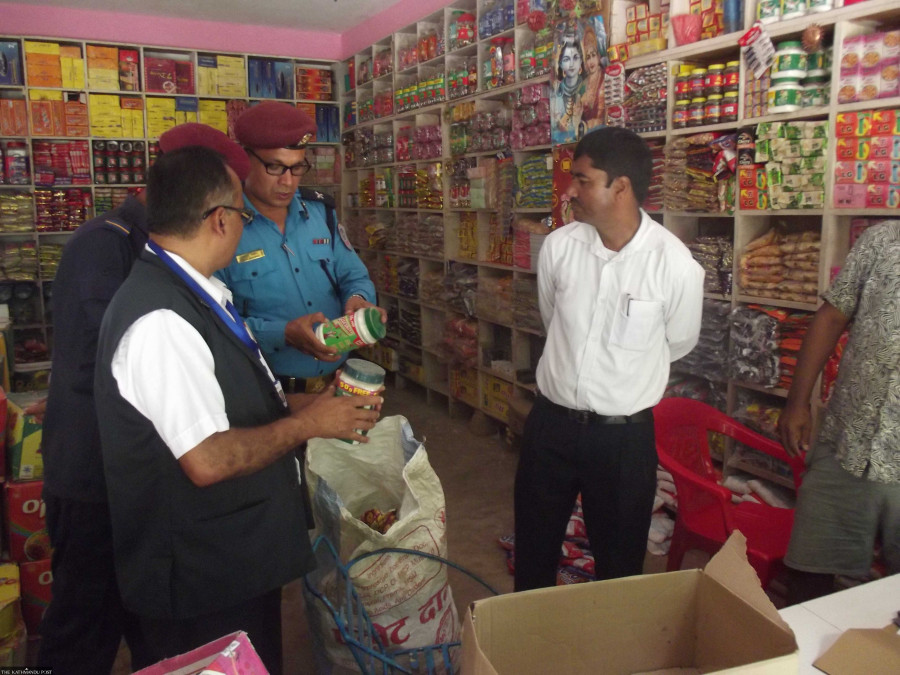Money
Nepal’s consumer court to begin hearings from March 15
On February 10, the Nepal Gazette published a notice announcing the court’s formation.
Post Report
Nepal’s first consumer court, a specialised court handling consumer complaints and grievances, will begin hearing cases on March 15, coinciding with World Consumer Rights Day.
The development comes nearly three years after the Supreme Court's order to establish such a court.
On February 10, the Nepal Gazette published a notice announcing the formation of the consumer court.
Judge Ram Prasad Sharma of the Kathmandu District Court will chair the court, with under-secretary Gehendra Raj Regmi from the Judicial Service and Under-secretary Ananda Raj Pokharel from the civil service as members.
The consumer court will initially handle Kathmandu, Lalitpur, and Bhaktapur cases. Due to budget constraints, the court has been established only within the Kathmandu valley. However, the Supreme Court has also ordered that consumer courts be set up outside the Valley.
Consumer rights activists have welcomed the court's establishment but raised concerns over weak policies.
“It is good that the consumer court has finally come into implementation, marking a significant achievement,” said Prem Lal Maharjan, president of the National Consumers Forum.
“However, the absence of stakeholders in the decision-making process raises concerns. Cases filed in the court could be influenced, as the members are all civil servants,” Maharjan said.
He also pointed out that the Consumer Protection Act 2018 should have been amended before implementing this provision.
“In international practice, a member of civil society with expertise in consumer rights is included to ensure fair and transparent judgment. This would help streamline the process of filing, processing, and resolving consumer-related disputes.”
Consumer rights activists also expressed concerns regarding the court’s efficiency.
Activist Maharjan stated that since the court is run by working civil servants, there could be delays in hearings, leading to case backlogs.
The court will be located within the Department of Industry premises in Tripureshwar.
The Consumer Protection Act 2018 mandates the government to establish consumer courts.
Based on this provision, the Ministry of Industry, Commerce, and Supplies drafted legislation in September 2019 and submitted it to the law ministry, which then forwarded it to the Judicial Council.
However, delays in the process led to the Supreme Court’s order on February 20, 2022, directing the government to set up consumer courts in all provinces.
This ruling came in response to a petition filed by the Forum for Protection of Consumer Rights Nepal.
Despite the Supreme Court’s directive, industry ministry officials argued that setting up consumer courts in each province would be impractical, as people would still need to travel long distances to present their cases.
The ministry, therefore, decided to first establish a consumer court in Kathmandu and gradually expand to other districts. However, frequent government changes have delayed the process.
Last fiscal year, the government allocated Rs10 million to establish a consumer court in Kathmandu on a trial basis.
Consumer courts are specialised judicial bodies that handle consumer-related disputes, conflicts, and grievances. They aim to provide a fast-track legal process to address consumer complaints.
The demand for consumer courts has been growing as consumers seek legal recourse against fraudulent traders. Many consumers avoid lengthy and complicated court procedures, particularly at the Supreme Court, which has allowed unscrupulous traders to operate with impunity.
Observers believe that establishing consumer courts will simplify the process of filing complaints and reduce legal hassles. The presence of consumer courts is expected to have a significant impact on controlling food adulteration, artificial shortages, and price manipulation.
Despite paying for essential services like water, energy, telecom, and financial services, consumers continue to face accessibility challenges.
The introduction of Nepal’s first consumer court is a crucial step toward protecting consumer rights and ensuring justice in cases of unfair market practices.
Experts say its effectiveness will depend on transparency, judicial independence, and efficient case handling.




 10.12°C Kathmandu
10.12°C Kathmandu













